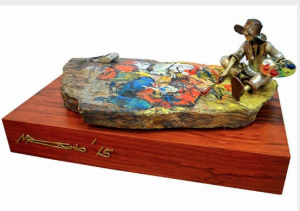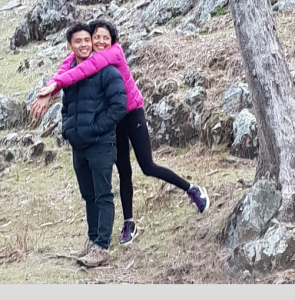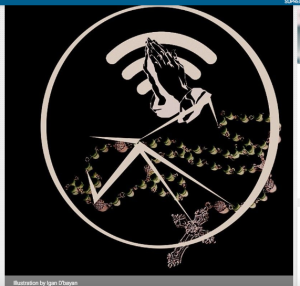HUMMING IN MY UNIVERSE – Jim Paredes (The Philippine Star) – July 29, 2018 – 12:00am
“One of the big things we need to do is to simply behave in our country the way we behave abroad.”
In this article, I will attempt to write about aspects of who we are as a nation and race. The subject matter is a hard one. It is like describing something you do not see, like air. We were born and largely raised as Filipinos and have taken that for granted and therefore we may not be objectively and consciously aware of what we are like.
I have been a Filipino for 66 years. To write objectively about being Filipino is like searching for God. How can you search for something that has always been already present? How can I step out of being myself to describe who I am?
Let me start by stating what the mythologist Joseph Campbell said many years ago. He said that every people and race in the world thinks they are the “Chosen” race. We are no exception.
We pride ourselves on being the only Catholic nation in Asia and this supposedly makes us special, maybe even blessed among all nations. Even when we do badly we explain our behavior with the catchphrase “only in the Pilipins” to berate ourselves, but often also to put a positive spin on our blunders and rebrand them as “uniqueness.” Recently, I heard some people claim that the term “Pilipino” is supposedly derived from two Tagalog words — pinili (chosen) and pino (to refine or smoothen) — oblivious to the historical fact that our country was actually named after King Philip of Spain whose name was Felipe in Spanish.
I have encountered many of our countrymen abroad and in the Philippines and I have observed certain commonalities we all share as a race. I speak generally but at the same time I am aware that there are exceptions. Here are some observations:
1) We love beauty contests. We take great pride every time a Filipina wins an international title. Beauty contests also happen in every barangay in the Philippines every year. We love pageants of all sorts. We also hold contests for Mr. Philippines and Ms. Gay Philippines. In almost every Filipino community abroad, it is not an uncommon occurrence.
2) We like things “small.” In Nick Joaquin’s essay entitled “Heritage of Smallness,” he observed that we have a penchant for downsizing things and making them less big. Instead of going for the bigger solid enterprise, we like to cut things up into smaller parts. When a province gets big and prosperous, we like to divide it into Norte and Sur. When a city becomes bigger, we want it halved into two. This is also obvious in these little geographical enclaves called subdivisions. Aside from the main entrance gate, it is not unusual to see other gates in many streets inside further subdividing the area.
In almost every nation abroad, it is hard to find one big united Filipino organization. Instead, you will see a host of organizations subdivided along ethnic and provincial groupings reflecting the way things are back home.
3) We love titles. We are status conscious. If you were once a president, a senator or a congressman or a judge, you expect to be addressed as such for life. The joke among our countrymen abroad is that if there are one hundred Filipinos, there will be 101 organizations because everyone wants to be president or a head of something. And of course, there must be an umbrella organization to unite them all.
4) We love the underdog. We identify with them. Almost every success story is framed in such a way that a “humble beginning” is always the way they all start. More than examining the elements that make something a success such as hard work, diligence, foresight and a methodical approach to goals, we like to focus on the odds that stood in the way of succeeding. Redemption stories are more inspiring when laced with a little extra drama.
5) We are genuinely kind and hospitable. We like to share whatever meager resources we have with visitors and guests, especially when they visit our homes. We genuinely want them to feel at home and be part of the family to a point where we forgo our own comforts and offer the best amenities we have to our visitors. We are also generally kind to foreigners. We are amused and pleased to no end when foreigners speak our language or adopt our customs.
6) We love socializing. We celebrate birthdays, christenings, baptisms, weddings, First Communions, house blessings, fiestas in honor of patron saints, graduations, Christmas, New Year, the birth of new enterprises, anniversaries, Valentines, Halloween, Mother’s and Father’s Day, the Feast of the Black Nazarene, etc. Even when there is no reason to celebrate, we look for one. We are party people.
7) We are generally optimistic and hopeful regardless of the situation. We collectively know that we as a people have gone through many trials before. We can overcome almost anything.
8) We are slow to anger but once we are collectively incensed, watch out.
9) We are daring and extremely adaptable. You can find Filipinos everywhere in the world working and raising families under all kinds of social and political systems, cultures, religions and weather conditions.
These are just some observations. The Jesuit historian Horacio Dela Costa once wrote that the characteristics that describe a nation or people are not permanent. They change over time. Many of their virtues are born out of historical necessity.
We are a very young nation. Our people are talented. As such the Philippines is full of promise but, at the same time, it is fraught with danger. We have so much to learn. Like a child, we have not learned to think and plan for the future. We still have to learn discipline, discernment, and to focus our efforts towards a direction of irreversible and continuous progress.
We have been colonized by the Spanish, the British (very briefly from 1762 to 1764), the Americans, and the Japanese. But so have many other countries. Many of them have moved past their colonial history and no longer use it as an excuse. We still have to fully overcome this once and for all.
During these times when, once again, our democracy and our institutions are threatened by dictatorship, I am hopeful that we will rise to the occasion to do the right thing and evolve. I believe there are enough people who can be motivated more by love for country rather than fear in collectively solving our problems.
You may ask why I am optimistic. I am because I have seen Filipinos survive and thrive in societies that are modern, progressive and run under the rule of law.
One of the big things we need to do is to simply behave in our country the way we behave abroad.







